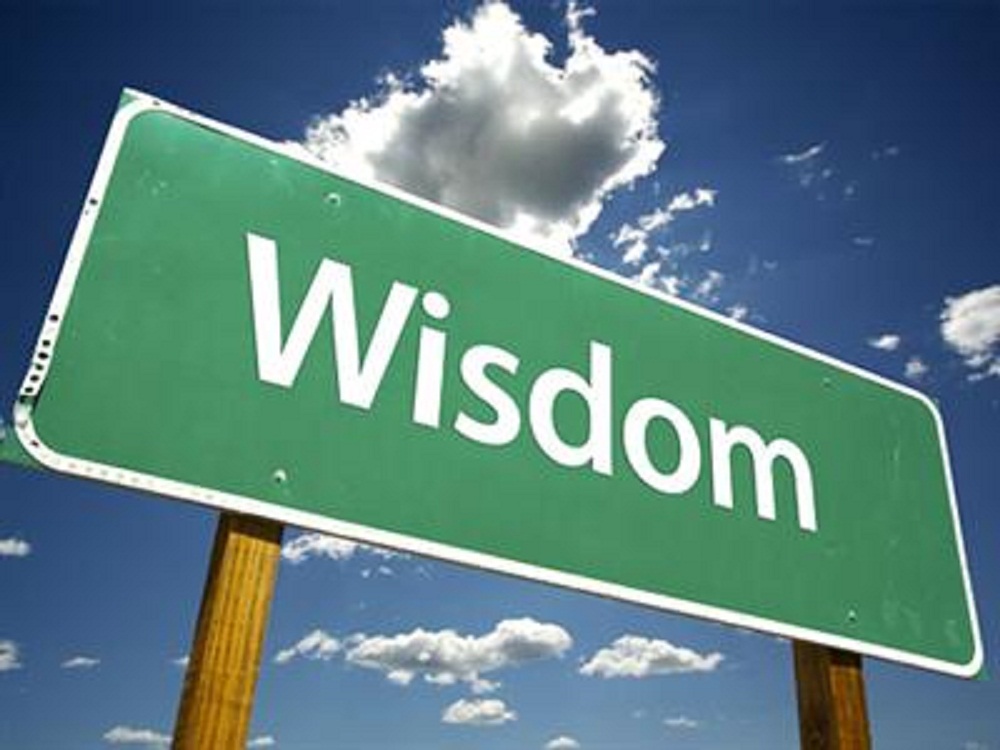Being Worthy
When people are asked to do something that might be out of their comfort zone we hear a lot of times, "Me, I am not the right person for this?" or with other words, I'm not worthy.
Within the following text Pastor Chris talks about being worthy.
Worthy
Matthew chapter 3 verse 1 to 12 (Common English Bible)
In those days John the Baptist appeared in the desert of Judea announcing, “Change your hearts and lives! Here comes the kingdom of heaven!” He was the one of whom Isaiah the prophet spoke when he said:
The voice of one shouting in the wilderness, “Prepare the way for the Lord; make his paths straight.”
John wore clothes made of camel’s hair, with a leather belt around his waist. He ate locusts and wild honey. People from Jerusalem, throughout Judea, and all around the Jordan River came to him. As they confessed their sins, he baptized them in the Jordan River. Many Pharisees and Sadducees came to be baptized by John. He said to them, *“You children of snakes! Who warned you to escape from the angry judgment that is coming soon? Produce fruit that shows you have changed your hearts and lives. And don’t even think about saying to yourselves, Abraham is our father. I tell you that God is able to raise up Abraham’s children from these stones. The ax is already at the root of the trees. Therefore, every tree that doesn’t produce good fruit will be chopped down and tossed into the fire. I baptize with water those of you who have changed your hearts and lives. The one who is coming after me is stronger than I am. I’m not worthy to carry his sandals. He will baptize you with the Holy Spirit and with fire. The shovel he uses to sift the wheat from the husks is in his hands. He will clean out his threshing area and bring the wheat into his barn. But he will burn the husks with a fire that can’t be put out.”
John the Baptist, a man born from the union of Zachariah and his wife Elisabeth, was raised in a family where the Torah, Tanakh, Midrash, and the texts of the seers were studied and told. John was well-versed in the history and teachings of these sacred texts. According to tradition, he was raised to follow in his father's footsteps and was literate in these teachings. However, John was different from others. He was a rough and tough man, reminiscent of the trappers and mountain men of our history, living in the desert of Judea. Like the glamorized stories of the Old West, Judea was an area where people didn't expect much good to come from, especially the desert, which was inhabited by nomads, robbers, and other so-called "good for nothings." Yet, this was where John chose to live and minister.
John’s life in the wilderness was not a matter of mere survival; it was a prophetic sign. His very existence, his manner of dress, and his diet spoke volumes to those who had ears to hear. In many ways, John was living out the prophecy of Isaiah in real-time. The wilderness, a place often associated with desolation and hardship, became the stage for the proclamation of God’s imminent intervention in human history.
Mark chapter 1 verse 2 to 8 (Common English Bible)
happened just as it was written about in the prophecy of Isaiah:
Look, I am sending my messenger before you. He will prepare your way, a voice shouting in the wilderness: “Prepare the way for the Lord; make his paths straight.”
John was in the wilderness calling for people to be baptized to show that they were changing their hearts and lives and wanted God to forgive their sins. Everyone in Judea and all the people of Jerusalem went out to the Jordan River and were being baptized by John as they confessed their sins. John wore clothes made of camel’s hair, with a leather belt around his waist. He ate locusts and wild honey. He announced, “One stronger than I am is coming after me. I’m not even worthy to bend over and loosen the strap of his sandals. I baptize you with water, but he will baptize you with the Holy Spirit.”
John, a straightforward preacher, baptized people who repented of their sins with water. When the Pharisees and Sadducees came, he saw them for what they were and told them to get their act straight and repent of their sins.
Matthew chapter 3 verse 7 (Common English Bible)
Many Pharisees and Sadducees came to be baptized by John. He said to them, “You children of snakes! Who warned you to escape from the angry judgment that is coming soon?”
This confrontation did not sit well with the Pharisees, who were the scholars of the Torah and stood high and mighty above everyone in society. John, dressed in camel hair and eating locusts and wild honey, dared to put his hands in a beehive to get honey and told them to fix their wrongdoings and get their acts straight. Repentance means to confess what is wrong in your life and then not do it again. John was a sought-after person, with people coming to him from all over to be baptized and listen to his sermons of repentance. He called the Pharisees and Sadducees "snakes" and "children of snakes," asking who told them to come to him to be baptized to escape God's judgment.
One of the things the scholars were always very proud of was their descent from Abraham. When John told them that God could turn the stones into the descendants of Abraham, it was a harsh insult. He did not intend to baptize them with water but told them that the one coming would baptize with the Holy Spirit. Baptism in the Old Testament was a washing or cleansing used in rituals. With John the Baptist, it symbolized not just cleansing but repentance of sin. The Holy Spirit Baptism mentioned by John was about cleansing with fire, where sin is burned away and the soul is washed by the blood of the Lamb.
Understanding the significance of baptism in this context is crucial. For the Jewish people, ritual immersion, or mikvah, was a well-known practice symbolizing purification and repentance. John took this familiar practice and infused it with a deeper, eschatological significance. His baptism was not just about ritual purity but about preparing for the imminent coming of God's kingdom.
Now, there was one special time when John was preaching and baptizing in the Jordan. Among the crowd came Jesus.
Matthew chapter 3 verse 13 to 17 (Common English Bible)
At that time Jesus came from Galilee to the Jordan River so that John would baptize him. John tried to stop him and said, “I need to be baptized by you, yet you come to me?”
Jesus answered, “Allow me to be baptized now. This is necessary to fulfill all righteousness.”
So John agreed to baptize Jesus. When Jesus was baptized, he immediately came up out of the water. Heaven was opened to him, and he saw the Spirit of God coming down like a dove and resting on him. A voice from heaven said, “This is my Son whom I dearly love; I find happiness in him.”

John, the hellfire and damnation preacher, proclaimed repentance and the imminent wrath of God. In that group of people, Jesus of Nazareth came to be baptized. As we read in the gospels, John clearly instructed the people on what to do. To the civil servants of the IRS, he said to not expect more from the people than they had the right to. To the soldiers, he said to stop abusing power and be content with their wages. He told King Herod to stop living in sin with the wife of Herod's brother, Philip. John was unafraid to tell people how to live their lives righteously, how to change, and how to coexist harmoniously. People were in doubt if he was the Messiah, but he made it clear that he was not even worthy to loosen the Messiah's sandal strap. Loosening the sandal strap and cleaning the guests' feet was always done by the lowest servant in a Jewish household.
When it was Jesus' turn to be baptized, John recognized Him and said,
“I need to be baptized by You, and you are coming to me?”
Jesus replied that the prophecies needed to be fulfilled, and the baptism proceeded. When Jesus came up from the water and prayed, the heavens opened, and the voice of God spoke,
“Thou art my beloved Son: in thee I am well pleased.”
This declaration from God was not just a personal affirmation but a public endorsement of Jesus' mission. It signaled the beginning of Jesus' public ministry and validated John's role as the forerunner of the Messiah. The heavens opening and the Spirit descending like a dove was a profound sign of divine approval and presence.
After this, events accelerated. John was arrested by Herod's people, or rather by Herodias, Herod's wife. Jesus faced His first battle with the devil in the desert after His baptism.
Luke chapter 4 verse 1 to 2 (Common English Bible)
Jesus returned from the Jordan River full of the Holy Spirit, and was led by the Spirit into the wilderness. There he was tempted for forty days by the devil. He ate nothing during those days and afterward Jesus was starving.
Jesus was tempted for forty days and did not eat anything. The devil used this to tempt Him, telling Him to turn stones into bread and to jump from the highest point of the temple, challenging His divine authority. But Satan was defeated because Jesus, knowing the Word, used the Word.
Luke chapter 4 verse 8 and verse 12 (Common English Bible)
Jesus answered, “It’s written, You will worship the Lord your God and serve only him.”
Jesus answered, “It’s been said, Don’t test the Lord your God.”
After this, Jesus went to Galilee and walked by the Sea of Galilee, where He called Simon and Andrew,
“Come and I will make thee fisher of men.”
Andrew, who had returned to his old profession after John's capture, was also known as Protokletos, meaning the first called. Further along, Jesus called James and John, the sons of Zebedee. They were eager to follow Jesus because they knew Him. Andrew had been with John the Baptist and must have heard the voice of God. The fishermen's close-knit community likely discussed this divine voice among themselves. Walking with Jesus, who was declared by the voice of God,
“Thou art my beloved Son: in thee I am well pleased,”
was an incredible opportunity.
Together, they went to the synagogue on the Sabbath, where Jesus taught. The people were astonished because they were used to hearing the Torah transcribed by scholars. But Jesus spoke the Word of the Torah with authority. When such events happen, word spreads, and people started coming from all around to listen to this man from Galilee.
In the 21st century, we have an advantage over the people of the 1st century. We have all the stories about Jesus in the Bible, and we have the Holy Spirit. Jesus was filled with the Holy Spirit, but His disciples  and other followers were not. The Holy Spirit is within all believers, and for those who have accepted this glorious gift of God, we not only walk with the Holy Spirit but through the Holy Spirit, God walks with us.
and other followers were not. The Holy Spirit is within all believers, and for those who have accepted this glorious gift of God, we not only walk with the Holy Spirit but through the Holy Spirit, God walks with us.
It is up to us to read about John the Baptist, learn from his perseverance, his urge to speak the truth, and his reverence and awe of Jesus, the Son of God. From Andrew, James, and John, we experience through the Holy Spirit the familiarity of Jesus the Christ. Because, beloved, walking with Jesus is walking with Abba, our heavenly Father. Through His Holy Spirit, we have received the same power. It is now our turn to be like Andrew, James, and John, to recognize and to follow.
The account of John the Baptist is deeply rooted in Jewish traditions and prophecies. John’s role as the forerunner of the Messiah was a fulfillment of the prophecy in Isaiah, a voice calling in the wilderness, preparing the way for the Lord. This imagery is powerful and resonant, especially for those familiar with the Hebrew Scriptures. John's baptism in the Jordan River also echoes the significance of the Jordan in Israel's history, a place of crossing over, of new beginnings, and divine encounters.
John's call for repentance and baptism was radical and transformative. It was a call to turn away from sin and return to God with a renewed heart. This message of repentance is as relevant today as it was then. In our contemporary context, repentance involves a deep, personal acknowledgment of our wrongdoings and a sincere commitment to change. It is an invitation to realign our lives with God's will, to bear fruit in keeping with repentance, as John admonished the Pharisees and Sadducees.
Moreover, John's confrontation with the religious leaders of his time highlights the tension between outward religious observance and inward spiritual transformation. The Pharisees and Sadducees prided themselves on their lineage and adherence to the law, yet John challenged them to demonstrate true repentance through their actions. This message is a timeless reminder that God desires a heart that is humble and contrite, not just external compliance with religious rituals.
As we reflect on John's ministry and his preparation of the way for Jesus, we are reminded of our own calling to prepare the way for the Lord in our hearts and in the world around us. This preparation involves not only personal repentance but also a commitment to justice, mercy, and humility in our interactions with others.
The baptism of Jesus by John marks a pivotal moment in the Gospel narrative. It signifies the inauguration of Jesus' public ministry and the fulfillment of all righteousness. The descent of the Holy Spirit and the voice of the Father affirming Jesus as His beloved Son underscore the divine approval and commissioning of Jesus for His messianic mission. This event also prefigures the baptism of believers with the Holy Spirit, a transformative experience that empowers us to live out our faith with boldness and conviction.
The temptation of Jesus in the wilderness, following His baptism, further illustrates the reality of spiritual warfare and the necessity of reliance on God's Word. Jesus' victory over Satan's temptations demonstrates His sinless nature and His unwavering commitment to the Father's will. For us, it serves as a model of resisting temptation and remaining steadfast in our faith, even in the face of trials.
The calling of the first disciples by Jesus along the Sea of Galilee signifies the beginning of a new community of believers, united in their commitment to follow Him. This call to discipleship is an invitation to participate in Jesus' mission of proclaiming the kingdom of God and making disciples of all nations. The response of Simon, Andrew, James, and John reflects a willingness to leave behind their former lives and embrace a new identity and purpose in Christ.
As we engage with the Gospel accounts of John the Baptist and the early ministry of Jesus, we are invited to enter into this narrative and find our place within it. We are called to repentance, to baptism, to discipleship, and to a life empowered by the Holy Spirit. This calling is not just a historical reality but a present and ongoing invitation to experience the fullness of life in Christ.
In the Messianic Jewish context, these themes are deeply connected to the fulfillment of God's promises to Israel and the inclusion of all nations in the redemptive plan. The ministry of John the Baptist and Jesus' baptism highlight the continuity of God's covenantal faithfulness and the unfolding of His redemptive purposes through the Messiah. As Messianic believers, we celebrate this rich heritage and embrace our role in proclaiming the Good News to both Jews and Gentiles.
 Beloved, let us be inspired by the example of John the Baptist, who boldly proclaimed the truth and prepared the way for the Lord. Let us follow in the footsteps of the first disciples, who responded to Jesus' call with faith and obedience. And let us live out our faith with the power and presence of the Holy Spirit, bearing fruit that reflects the transformative work of God's grace in our lives.
Beloved, let us be inspired by the example of John the Baptist, who boldly proclaimed the truth and prepared the way for the Lord. Let us follow in the footsteps of the first disciples, who responded to Jesus' call with faith and obedience. And let us live out our faith with the power and presence of the Holy Spirit, bearing fruit that reflects the transformative work of God's grace in our lives.
I desire nothing else but to follow. I love this man called Jesus, and I'm not worthy to untie His shoelace. But He, like John, called me worthy. I am worthy because He made me worthy. You are worthy because He made you worthy. I have shared this with you. Now, go out and share this with someone, in the city, at the sea, lake, or in the desert. You are worthy, cleansed by the baptism in the fire of the blood of the Lamb.
Amen.
pst. Chris







